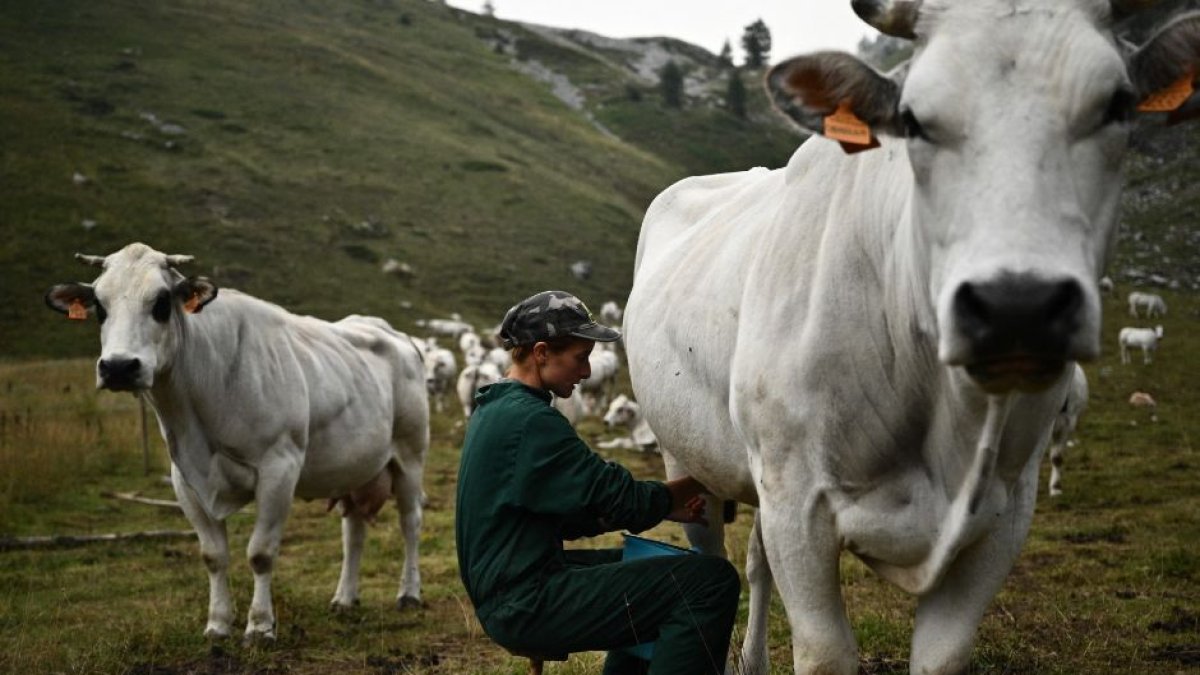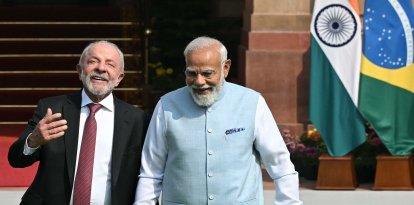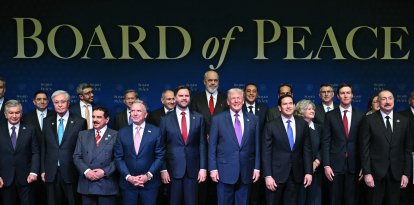Denmark announces world's first tax on flatulence from cows, sheep and pigs
From 2030, Danish farmers will have to pay about 300 kroner ($43) for every ton of carbon dioxide emitted by their animals in a bid to cut Danish greenhouse gas emissions by 70%.

A shepherd milking a cow
The government of Denmark announced Wednesday that it will introduce a new tax on livestock farmers for flatulence emitted by their cows, sheep and pigs.
Starting in 2030, Danish farmers will be required to pay about 300 kroner (equivalent to $43) for each ton of carbon dioxide emitted by their animals. This amount will increase five years later to 750 kronor (about $108) per ton.
However, the actual tax amount is lower, as the government has decided to apply an income tax reduction of 60%, according to AP. This will reduce the effective cost per tonne to 120 kroner ($17.3) by 2030, increasing to 300 kroner ($43) by 2035.
The reason for this new tax, as explained by Danish Tax Minister Jeppe Bruus, is to achieve a 70% reduction in Danish greenhouse gas compared to the levels in 1990.
"We will take a big step towards climate neutrality in 2045," said Bruus who also stressed that Denmark "will be the first country in the world to introduce a real tax on CO2 in agriculture," a measure he hopes other countries will adopt.
The Danish government took this step on the basis of data from a report prepared by the Food and Agriculture Organization of the United Nations, which indicated that around 12% of global emissions in 2015 came from livestock. The report highlights the significant contribution of methane emissions from livestock, particularly thorugh their flatulence.
However, livestock farmers are not satisfied with the measure. For instance, the Danishfarmers' group Bæredygtigt Landbrug, through its chairman Peter Kiaer in a statement obtained by CNN, described the measures as nothing more than a "terrifying experiment."
"We believe that the agreement is pure bureaucracy. We recognize that there is a climate problem… But we do not believe that this agreement will solve the problems, because it will put a spoke in the wheel of agriculture’s green investments," Kiaer said emphasizing how the new tax will hurt the agriculture industry, a sector that already staged a series of protests recently due to measures such as these.
























